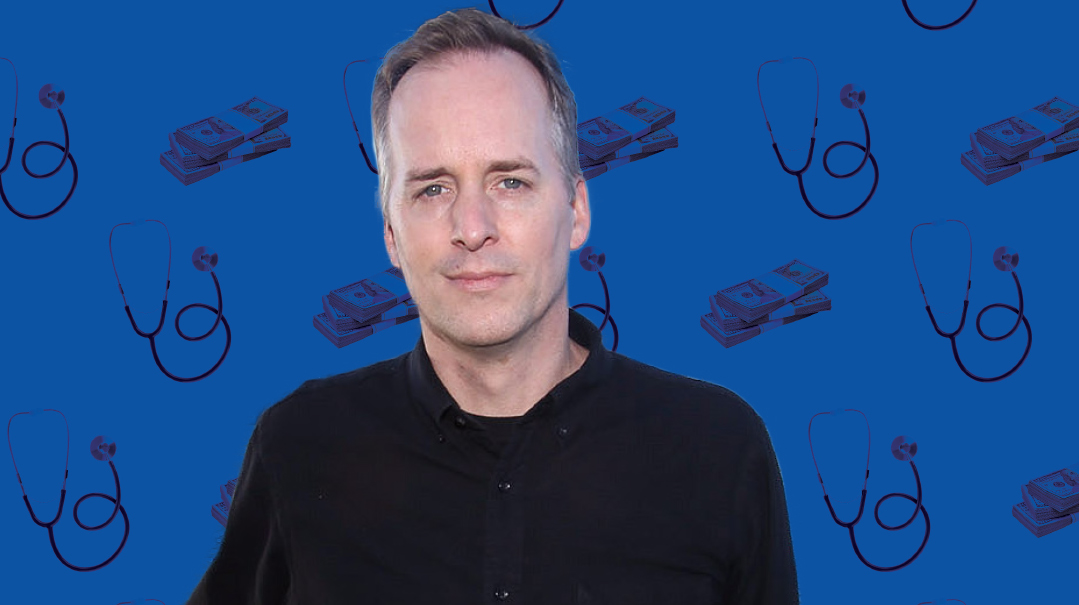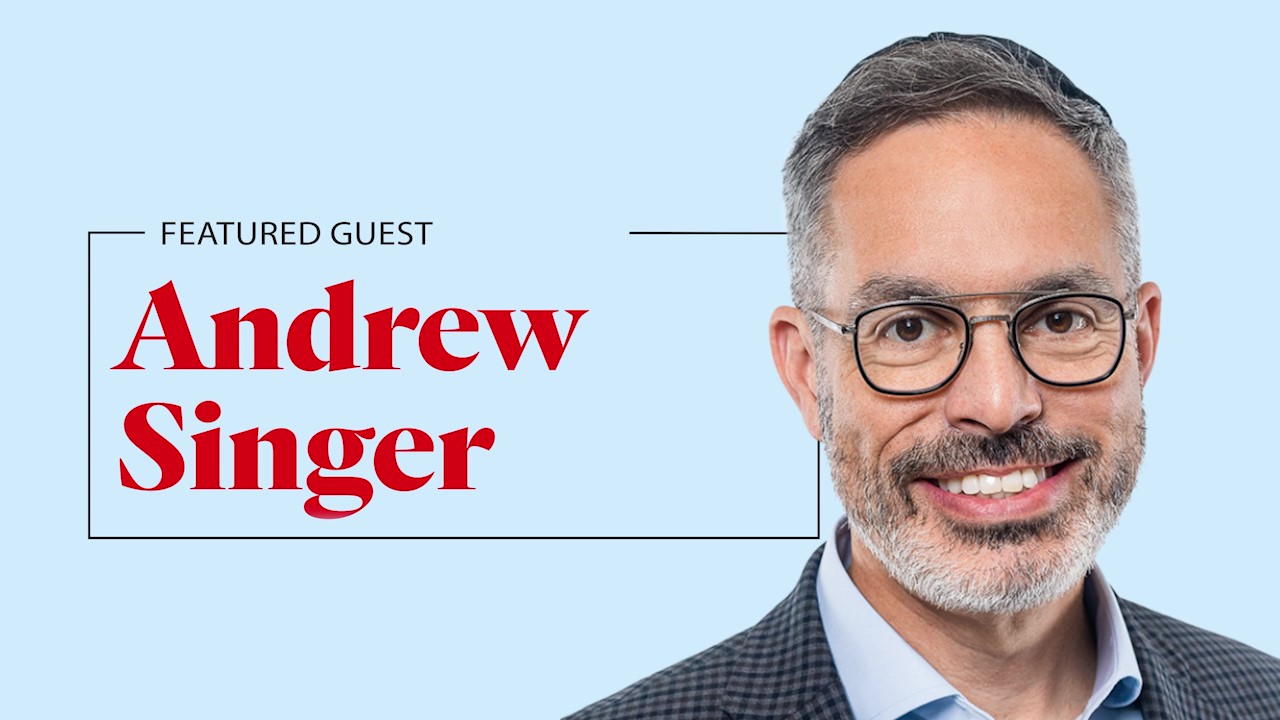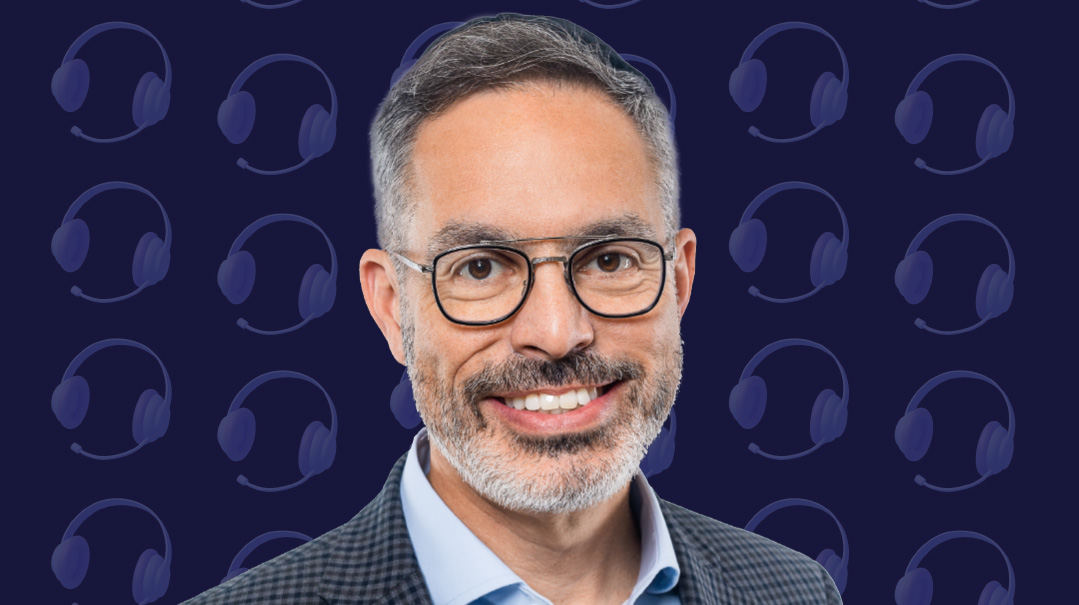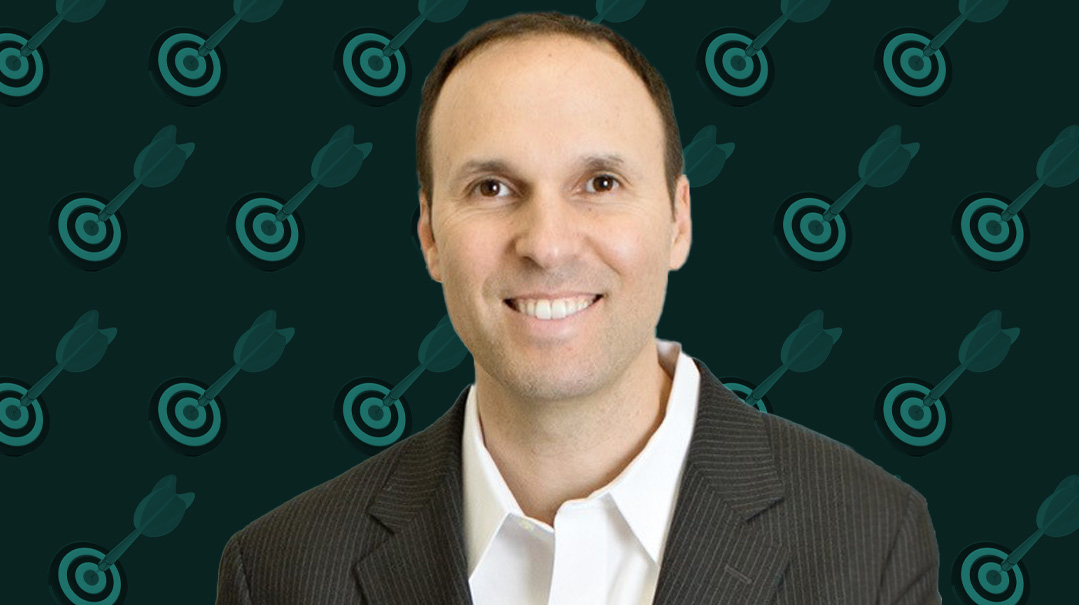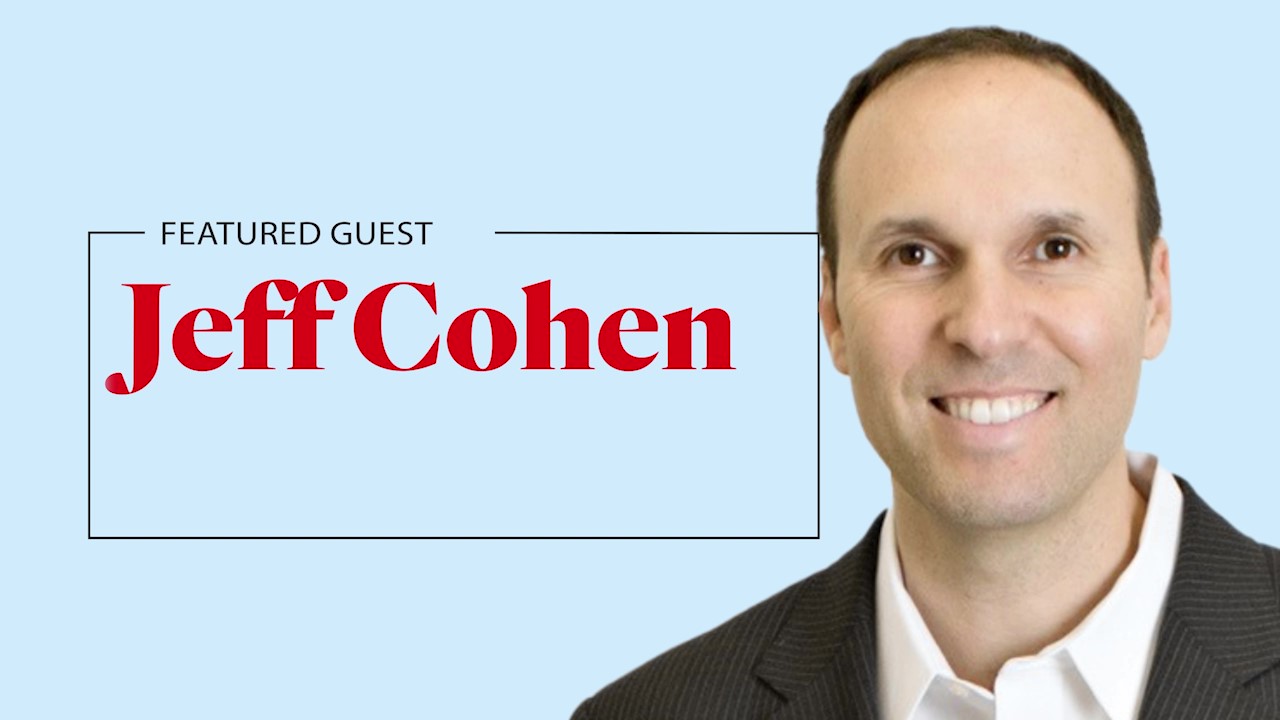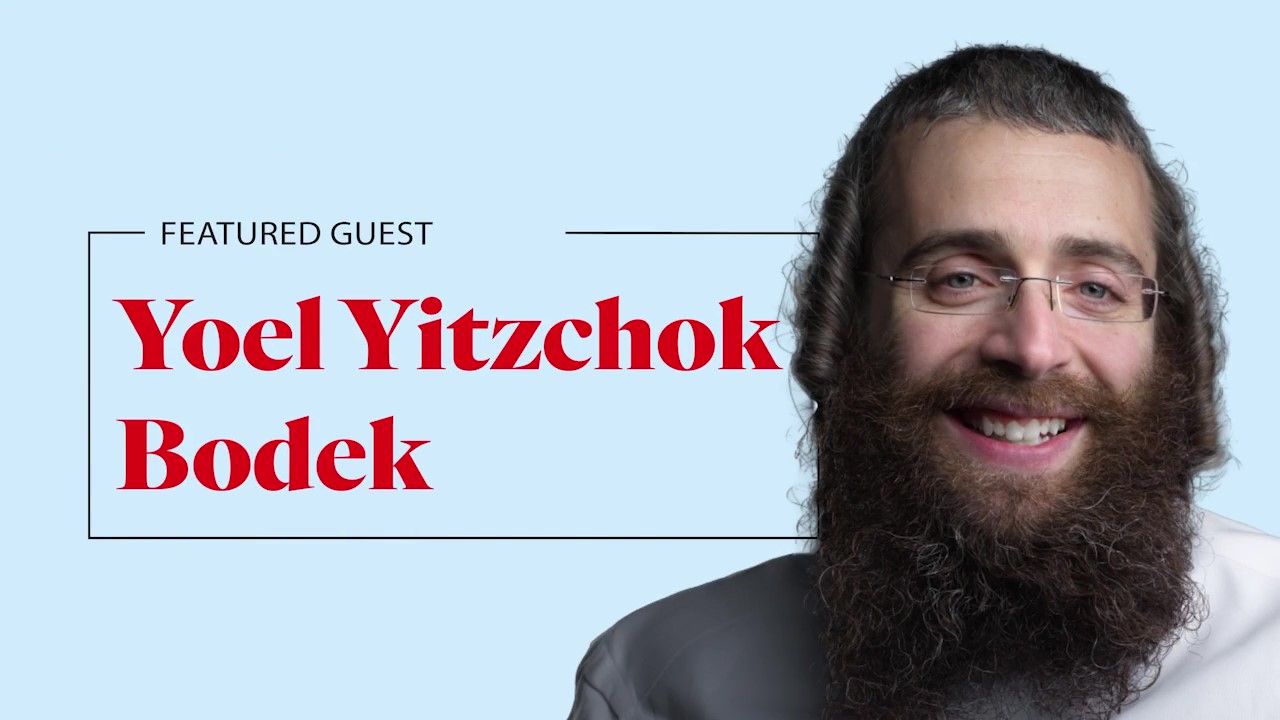To Life! With Yoel Yitzchok Bodek
| August 8, 2023Which life insurance is the right fit for you?
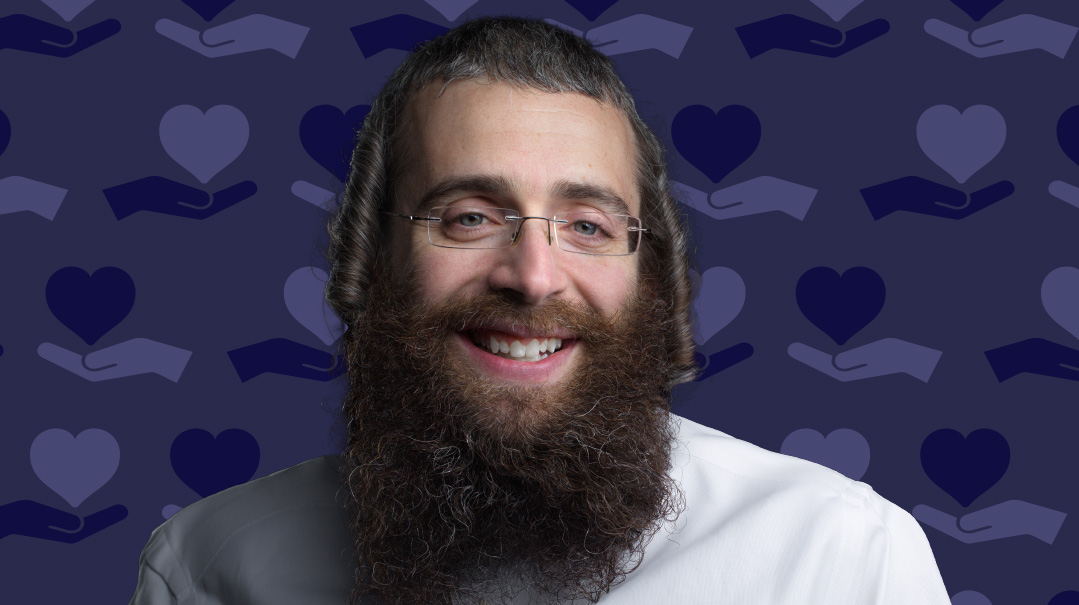
Yoel Yitzchok Bodek lives near Monsey, New York, and is the founder of Brokers Central, a company that offers brokers comprehensive information on all the life insurance products available on the market. He says he always loved finance, but freely admits that he initially had no desire to enter the life insurance field.
Twenty-three years ago, a MetLife recruiter picked up a résumé he had posted on an online job forum. He told the recruiter he wasn’t interested in the field at all, but let himself be convinced to come down to the Bay Ridge office for a conversation. By the end of the interview, he’d been successfully convinced to give it a try.
The team reframed the industry for him, upending his vision of agents trying to close a deal pushing a product that is difficult to sell. “It’s about financial planning, and helping families prepare for the future,” they told him.
He soon learned that life insurance isn’t a financial plan, and a financial plan that doesn’t incorporate life insurance isn’t a very sound one.
He decided to give it a try, and 23 years later, he’s still at it.
Yoel Yitzchok doesn’t actually sell life insurance to individuals; he’s a wholesaler — an interesting description for an industry in which no physical products are sold. “We don’t have warehouse stacked with boxers of insurance products,” he clarifies.
Instead, he and his team advise brokers in the field, so they can best guide their clients.
While many life insurance brokers typically deal directly with one company, sometimes a client needs something different. In cases like these, Yoel Yitzchok uses his broad knowledge of the spectrum of insurance products to guide them toward the right fit for that particular client.
Why do people need life insurance?
One word: responsibility. Prior to the Covid pandemic, people didn’t connect with the need on an immediate level. When I spoke to Rabbi Paysach Krohn, he put it this way: “Everyone thinks it only happens to the other person. But you don’t realize that to someone else, you are ‘that other person.’ ”
Covid made people realize the necessity of having a plan in place in case the worst happens, and also that things can change on a dime — pushing it off is not the right thing.
On a practical level, life insurance is financial assurance. On a broader level, it’s dignity. It’s dignity for people you love. It’s dignity for your own children. If a father or mother passes prematurely, not only is the family dealing with a terrible sorrow, they’re also exposing themselves to the shame of needing a collection.
During Covid, someone pooled all the community fundraisers and tallied them. It was about $24 million, which is incredible when you talk about individual donations. However, there were about 60 campaigns on that page. The average family walked away with only around $400,000. That’s barely enough to keep a frum family afloat for more than a couple of years.
And that’s aside from the fact that some of the fundraisers are conducted in a way that’s a modern form of torture. A child lost his father — and on top of that his face needs to be plastered on the streets? The one thing these kids need — and deserve — is a normal life. If you use their faces to fundraise, you’re stealing that from them.
People always ask, “But they need money. What should we do?”
Simple answer? Life insurance.
It’s not as exciting as a fundraiser, but any responsible family who cares about the future and dignity of their children should invest in this.
Are there any people you don’t recommend purchase life insurance? Is there any category of people you can think of who wouldn’t need it?
Of course, there are going to be instances where a person doesn’t need life insurance. Someone with no dependents, perhaps more mature families who aren’t supporting as many kids, people who have outside considerable assets, or somebody who’s single. But even in those cases, you can argue that having the right type of life insurance could still help.
For example, many insurances offer the ability to accelerate the payouts so you can use them toward long-term care. With those kinds of policies, coverage is still helpful. There are multiple situations where life insurance can be used to address needs other than the standard consideration of replacing a breadwinner’s salary.
So would you say that anyone who’s still single can ignore this subject for now?
Not necessarily. As a general rule, the younger you are, the healthier you are. If you get the medical exam when you’re younger, your policy will be locked in at a lower rate. Getting it younger can help you in the long term.
Also, while we usually focus on life insurance as a means of supporting a family, even someone without children may want to leave a charitable legacy.
Can you explain some of the basic industry lingo?
-Term and permanent life insurance
A simplistic way of looking at it is renting versus buying. One is temporary and one is permanent. Term insurance is temporary; it only covers you for a certain period, such as 10, 20, or 30 years, and not for your entire life. The other category is permanent — often referred to as whole life or universal life insurance — and can stay in effect your entire life.
Permanent life insurance generally has an additional layer of protection to withstand missed premiums and stay in effect during crucial times such as loss of income or illness, whereas term life insurance will be canceled for non-payment and can be impossible to reinstate at time when it’s most needed. Most companies will not reinstate lapsed policies for individuals whose profile includes a current illness or newly developed medical history since the policy was originally purchased.
-Underwriting
Underwriting is the process wherein the client’s application for an insurance policy is submitted to an underwriter. Insurance companies take a risk when they cover you, and that risk pays off when you live a long, healthy life and they don’t need to pay out your coverage.
That’s why they present the application to an underwriter, who assesses the client’s background, health, and other possibilities that might make the company uncomfortable taking the risk of insuring this person. They might review your financials as well, and ask you to go for a health exam.
If a client has a bad history of driving under the influence or moving violations, they’re also not a good customer for a life insurance company, and therefore they may decide not to take them on, or to decrease the amount of coverage they’ll provide.
Essentially, the underwriter’s role is to either approve or reject your application.
-Virtual exams
There’s a widespread misconception that a virtual health exam (where you don’t give any blood or take any tests), yields less information. It’s actually the opposite. In fact, digital underwriting allows insurance companies to access way more information than blood work ever did. They have complete access to medical history, any health insurance claims that have been filed, access to lab reports going back a decade, and access to financial data, motor vehicle data, and prescription histories. Digital underwriting is more convenient — but it’s not less invasive.
For transparency’s sake, how does a life insurance salesman make money?
As is true with pretty much any other profession, a salesman nets a commission each time he makes a sale. Hopefully, they have the training to offer solutions and advice that are most appropriate for you, but they do get compensated through commissions. And the bigger the policy they sell, the more commission they make.
Generally speaking, a permanent life insurance policy or a whole life insurance policy would have a higher premium, and consequently, earn a salesman significantly higher commission than just selling term life insurance.
One of the significant challenges of our business is the fact that very few agents can make a living selling just term life insurance. That’s where the friction between trying to make money and doing what’s right for the customer comes in. It’s hard to make a living selling term life insurance, but whole life is not always the right fit for everyone. (Obviously, this issue can also arise in other businesses that are dependent on commission earnings.)
What would a healthy business model look like? I would suggest, as with most areas in business, that the 80-20 rule applies to our profession as well. An agent helping 100 families who sells 80 term life policies and 20 whole life policies is probably doing his job with integrity, making money while still prioritizing the client’s good.
Is whole life oversold in our community?
Here is a little secret that has been obvious to me for a long time. In many chareidi communities, there is a dearth of properly trained financial advisors. Add to the equation the lack of financial literacy education in our school system, and consequently, when a life insurance agent approaches a young couple, he is often the first one to open the discussion about the need to establish financial goals and security. Directly or indirectly, this has led to misconception that whole life policies are the solution, while for many families it is a mismatch for their unique situation.
Nevertheless, I posit that a bad life insurance policy is generally better than no life insurance. And of course, life insurance agents have helped scores of families get started on their journey of financial security, growth, and asset accumulation. So, while it may seem that perhaps the whole life insurance is being oversold, overall, I’d say the industry has made a significant positive contribution to the frum community’s finances.
I also find it encouraging to see a new crop of young professionals training as financial advisors, which will bring a new, vital dynamic to this conversation.
You’ve touched on this above, but let’s elaborate a bit. Why are so many professionals in the financial services community ambivalent about whole life policies?
Often, I think, it boils down to comparing whole life insurance to other investment options. In my professional opinion, this is a nonstarter. It’s like comparing apples to oranges.
I like to view whole life as an asset class of its own, perhaps as a possible bond alternative and/or long-term safe savings vehicle. Whole life insurance products don’t result in snazzy investment returns, but they can be used to help offset market sequence risk (the risk of getting bad market returns at the wrong time), and the policy can also be designed to amplify the savings component. Under no circumstance should it be viewed as a vehicle for achieving a high rate of return on your money.
Think of it as the Swiss Army knife of financial products. While other products will most likely outperform it in terms or rate of return, and term life insurance is cheaper in the moment, no other financial product packs as many benefits into one neat package as whole life does.
The package includes a conservative rate of return, principal guarantee, deferred taxes, generally has creditor protection, no annual 1099s, funding for long-term care in excess of its cash value, policy proceeds that are income tax free to heirs, built-in lapse protection, and of course, permanent life insurance.
It is also the only financial accumulation product that can also include a disability waiver of premium. In essence, if one were to become disabled due to an accident or illness, not only will the waiver keep the insurance in effect, it will also allow the cash value component to keep on growing.
Still, like everything in life, it calls for moderation. While whole life packs a big punch, owning too much of it would be like putting all of your investment dollars into Tesla. Just because they have done so well for the past many years, you never want to ignore the risk of having too many eggs in one basket. It’s probably not the right product for every newly married couple, and ought not to be an outsize line item on one’s budget or portion of one’s regular saving contributions. The trick lies in finding the balance.
As a general rule, do you recommend term or whole life insurance?
The answer is about really understanding your client, their needs, time horizon, risk tolerance, and budget.
Recently, a father in his mid-thirties with two young children reached out to me. He wanted a second opinion on the advice his broker gave. I had a discussion with him, and based on our talk, figured he’d need around $1.5 million in coverage. That means that, if something G-d forbid were to happen to him, the insurance company would pay his family $1.5 million.
However, because of his budget constraints, we came up with the idea of buying a 20-year term policy of a million dollars and another 30-year term policy of half a million dollars.
It’s important to know that you can layer policies. When your youngest kids are born, you may consider buying a 30-year policy. For older kids, you might only need a 20-year policy. It’s not that you’re buying policies for your kids, but that you’re buying policies to ensure that you will be covered while those children are still at home. If your oldest is currently 15 and you want to ensure you are covered until his or her adulthood, you might not need as long-term a policy as you need for your youngest who is two.
I would recommend getting a term policy with the longest duration, even if that is a bit of a financial stretch, especially for young customers.
How much should families expect to pay toward life insurance?
For this particular individual, policies will end up costing him about $900 annually. So for $900 a year, if G-d forbid, something were to happen to him in year seven, his family would see $1.5 million.
I would like to think that for most families, buying term life insurance is a no brainer. Policies are generally economical and affordable — people are often surprised by this. For example, if a 25-year-old male were to buy a million dollars of 20-year term life insurance, it would cost about $32 a month, which is around a dollar a day — all to ensure your children are covered.
Even once you have life insurance…
Sit down for a review at least once a year. There are often life events that trigger an urgent review of your finances, like welcoming another child into the family, a divorce, or health concerns. But even if nothing like that comes up, you still want to make sure you review things on a regular basis to make sure your coverage still suits your needs.
In the Kosher Money episode, you mentioned that one of the ways clients could get a better premium — specifically if they’ve been on medications or have a history — is by bringing in a third party. How does this help?
It’s mainly a privacy thing. Brokers are usually people you know from the community or shul. You’d be comfortable telling them if you had the flu — even about cholesterol or heart issues — but you may not be comfortable sharing your history with anxiety or depression.
In those instances, the agent can offer the client the opportunity to connect him to a general agent, who doesn’t know the customer. The general agent can professionally assess the information and share the takeaways directly with the company, so it remains more discreet.
The initial agent will still advise the client on the policy and the amount of coverage, but the client is given the privacy and space to choose to whom he wants to disclose his more personal information.
By being forthcoming and open about one’s medical situation or history, the broker may be able to get the client a better offer, resulting in a lower premium.
Where do organizations like Areivim fit into the life insurance equation?
The concept on its own is a beautiful thing and the organization is wonderful. But it’s important to understand that an organization like this does not replace life insurance.
My understanding is that they release the money incrementally, based on life cycle events such as tuition payments, but primarily when a child gets married. They also scale up coverage — i.e., if a young kollel family joined the program, their coverage would increase as they have more kids, even if covered individuals develop a medical condition.
However, people often need the life insurance money up front. Areivim also generally won’t make funds available to pay outstanding debt.
So I think it’s a wonderful program, but your family is better off with complete coverage. The two don’t have to be mutually exclusive, though; there’s no downside to joining and it’s a beautiful initiative, but don’t let it replace life insurance. In fact, Areivim encourages people to get life insurance.
You mentioned that insurance is based on the clients’ needs and budget. How do you work out a family’s needs to make sure their coverage is adequate?
There are a few methods. The easiest one is taking a look at the family’s current budget. Let’s say it’s $100,000. The recommendation would be for them to buy 20 times that amount in life insurance, in this case $2 million.
And while $2 million sounds like a lot of money, it can actually run out pretty quickly. So the idea is not to spend that, but rather that once the funds are paid out, they are set up as a principal fund that can generate interest to cover the cost of living, and also as a backup to help support unexpected expenses and/or long-term goals. It’s a fund you can tap into — not something you can cap out.
You mentioned that a life insurance policy is also a way of leaving a legacy?
Some people save their entire life so they’ll have something to leave their shul or children. But it doesn’t have to be that way. Tom Hegna, a guru in the business, often says, “Clients should die cash poor and life insurance rich.”
While prudent spending is always ideal, when people buy life insurance, they don’t have to save every penny. They can live a comfortable life and then designate the posthumous payouts to the charity or cause of their choice. It’s a way to leave a legacy while still living a comfortable life.
Have you seen schools asking for proof of life insurance, as a way of making sure the family will always be able to afford tuition?
I think it would be a phenomenal thing to do. Some schools think it’s wrong to force it, but I don’t see why. Anyone who has a car has auto insurance. Why is life insurance any different?
I think it could be a legitimate question on a registration form. If something G-d forbid happens, someone’s going to have to foot the bill for these children. This is way to make sure it’s done with dignity. And if nothing else, it’s also a way to plant a seed in parents’ minds and make them think about insurance, make them realize this is something they should have.
You talked about stay-at-home moms. Why would they need life insurance too?
If both parents work, both need to be covered for the role they play in the family’s finances. But women need to be covered even if they don’t work.
There’s a study that aggregated the numbers for a stay-at-home mom to the equivalent of a $184,820 salary. If something happens to a primary breadwinner, there’s a financial void. If a stay-at-home mom were to pass away, lo aleinu, aside from the catastrophe of losing a parent, there’s a huge financial angle, too. The surviving parent might have to hire help. He might have to cut back his hours. The kids might need more outside support or therapy. All these expenses need to be calculated.
The bottom line is that term or permanent life insurance may or may not be a good fit for you, and it’s important that people discuss their circumstance with a trusted life insurance professional to ensure they get advice that is in their best interests.
(Originally featured in Mishpacha, Issue 973)
Oops! We could not locate your form.

